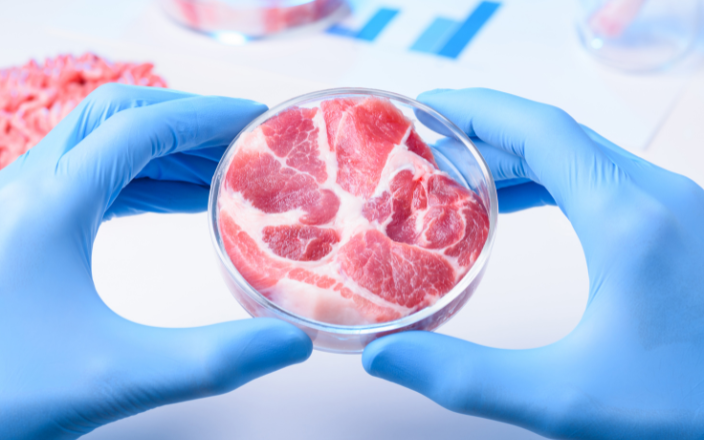Florida Governor Ron DeSantis recently signed a groundbreaking law prohibiting the sale of lab-grown meat within the state. This move has sparked debate and drawn attention to the emerging field of cellular agriculture.
The controversy
The decision comes in response to global efforts by organizations like the World Economic Forum (WEF) to promote alternative protein sources, including lab-grown meat and insect-based foods. Governor DeSantis expressed his opposition to these initiatives, stating that Florida would not be coerced into abandoning traditional livestock farming.
In a press release, DeSantis said, “Today, Florida is standing up against the global elite’s plan to force the world to consume meat grown in Petri dishes or insects. We will continue to invest in our local farmers and ranchers to preserve our authentic beef.”
What is so troubling about this meat that it should be banned before it is in circulation?
While federal government regulatory agencies such as the U.S. Department of Agriculture and the Food and Drug Administration (FDA) continue to debate federal regulations for this cultured meat, several states across the country, mostly Republican, have gone ahead and begun passing legislation to ban it.
Florida has been the first state to ban lab-grown meat, but it is not alone. Other states such as Alabama, Arizona or Tennessee are already on the same strategy and will do so soon. In addition, other states have also put regulations on the labeling of cultured meat, mostly prohibiting the use of the word ‘meat’ for this food.
The science behind lab-grown meat
Lab-grown meat, also known as cultured meat or cell-based meat, is produced by cultivating animal cells in a controlled environment. Scientists extract muscle cells from animals and then encourage their growth in bioreactors. The goal is to create a product that resembles conventional meat without the need for raising and slaughtering animals.
Proponents argue that lab-grown meat could reduce the environmental impact of traditional livestock farming, decrease animal suffering, and address food security challenges. However, critics raise concerns about its safety, taste, and long-term effects.
Protecting local agriculture
Florida’s ban aims to protect the state’s agricultural industry, which includes beef production. The legislation prohibits the sale of lab-grown meat products, emphasizing the importance of supporting local farmers and preserving the integrity of American agriculture.
Wilton Simpson, Florida’s Commissioner of Agriculture, echoed DeSantis’s sentiments. He called lab-grown meat “a shameful attempt to undermine our proud traditions and prosperity” and pledged to maintain a strong and prosperous agricultural sector.
Economic implications
The decision has economic implications beyond Florida’s borders. As the first state in the U.S. to enact such a ban, Florida’s stance could influence other states’ policies. It also highlights the tension between technological innovation and traditional practices.
Conclusion
Florida’s prohibition on lab-grown meat reflects a broader debate about the future of food production. While some view it as a necessary step toward sustainability, others see it as a threat to established industries. As the world grapples with feeding a growing population, finding a balance between innovation and tradition remains a critical challenge.
Sources: Available upon request.

